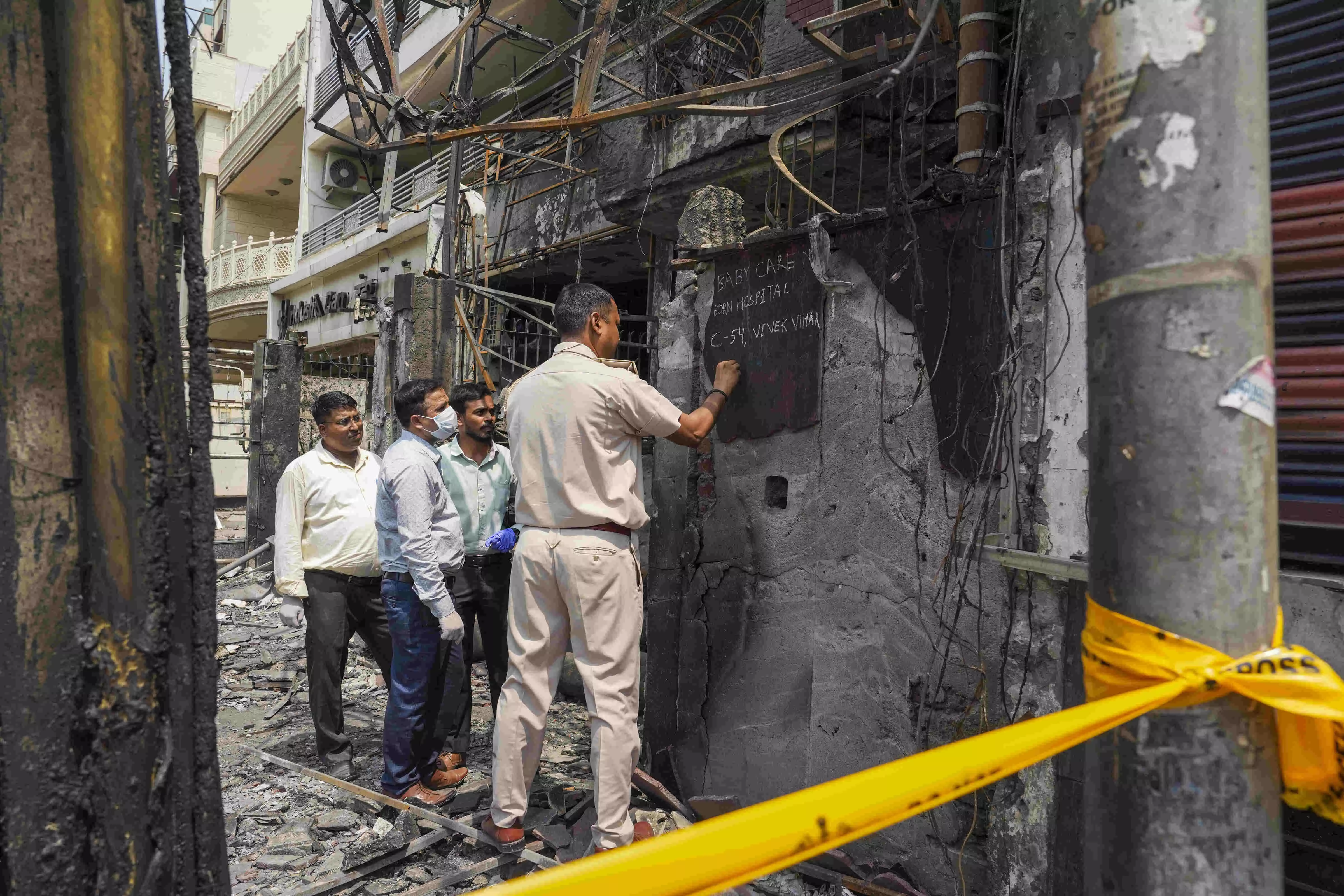Fatal negligence

Dozens of innocent lives, including those of children and newborns, have been gutted in fire over the past few days. At least 33 people, including nine children, perished in a blaze at the TRP gaming zone in Rajkot, and seven newborns were killed in a fire at a children’s hospital in Delhi. At the centre of these preventable deaths are, once again, gross negligence and systemic failures. Lack of administrative oversight, inadequate safety measures, and sheer disregard for human life are visible to bare eyes. As families of the deceased plunge into the deep chasm of grief and loss, politicians are doing what they are best at — expressing condolences and offering compensation. Under the load of intended benevolence and responsible-looking reactions of the state, one can easily see the issue of accountability getting lost in the ambiguities of the cases. In the world of fast-paced information, where public attention is rendered incapable of remaining fixated on any particular incident for a long time, these fire incidents will take very little time to be pushed into oblivion. Ironically, the complex web of legal and procedural protocols, which are meant to ensure accountability, will themselves serve as a catalyst for obscuring accountability.
In the Rajkot fire incident, the High Court mixed no words in saying that "people are dying due to machinery" — ostensibly referring to the negligence of state administration. On finding that certain gaming zones in the state are running without required permits and fire certificates, the court said it cannot “trust” the state government — ruled by the BJP. Harsh words, indeed! Pointing out that it is not a standalone incident, the High Court recounted that it has given several decisions and instructions in the last four years in this regard. Shockingly, despite the court's clear-cut directives, several serious fire incidents occurred in the state, including the Surat chemical factory fire in November last year. It is baffling that the gaming zone in Rajkot had only one emergency exit. Additionally, certain gaming zones in the state are learnt to be operating without no-objection certificates — indicating the prevalence of lawlessness in the state. The natural question is: what was the state administration waiting for — an alarm bell in the form of a lethal mishap to wake up? It is not at all surprising, thus, that such fire incidents occur frequently in many parts of the country, claiming lives unnecessarily. In Rajkot, the police and fire officials are still piecing together the cause of the fire.
Equally harrowing are the facts emanating from the Vivek Vihar fire incident in Delhi. seven newborns were charred to death in a fire at New Born Baby Care Hospital. The hospital's license had expired, and it lacked basic fire safety equipment, including extinguishers and emergency exits. The building was also operating beyond its sanctioned capacity, with 12 beds instead of the licensed five. These lapses undoubtedly point towards a severe lack of oversight and accountability. The police have arrested the hospital owner and a doctor on duty, but this is scant comfort to the grieving parents who lost their babies. Preliminary investigations suggest the fire may have been caused by a short circuit, exacerbated by the presence of oxygen cylinders. The accused have been booked under Sections 336 (negligence), 304 A (culpable homicide), and 34 (common intention) of the Indian Penal Code. Incidentally, in another incident, three individuals were killed in a fire in a residential building in the Krishna Nagar district of East Delhi on Sunday. These harrowing incidents are part of a recurring trend across the country — a trend that can be stopped only through positive political intent and a proactive approach. Sadly, there exists very little trace of such approaches.



